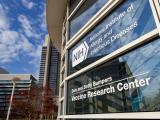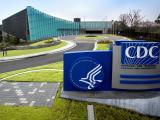The World Health Organization (WHO) today announced the launch of a unified program for health emergencies, an effort to bolster vaccine and drug development, and other reforms that are under way in the wake of the glitches that occurred during West Africa's Ebola crisis.
Also today the United Nations (UN) announced the official end of its special mission for Ebola, the first ever geared toward a public health crisis.
Outbreak assessments
At a media telebriefing in Geneva today, WHO Director-General Margaret Chan, MD, MPH, noted that over the past few months several groups have weighed in on outbreak response.
For example in late March, separate reports from Doctors without Borders (MSF) and Oxfam detailed early missteps. And on Jul 7, an independent panel appointed to review how the WHO performed in the response found a host of management and cultural problems, along with flaws in the International Health Regulations (IHRs) that hampered the response.
The WHO on its own had already identified several areas for improvement, with its executive board in January approving a set of proposed changes, several of which were adopted by the World Health Assembly in May. They included better command and control mechanisms across all WHO levels and a $100 million contingency fund to cover initial field operations in emergency situations.
Six areas of focus
Chan said WHO officials have studied all the reports and guidance from different groups and is focusing on six areas in which the recommendations converge. One is a unified program for health emergencies, and a 19-member advisory group has been appointed to work on those reforms, she said.
Headed by David Nabarro, MD, the UN's special envoy on Ebola, the group met for the first time on Jul 28 and hopes to wrap up its work by the end of the year. The group includes representatives from governments, nongovernmental organizations, donor organizations, and the United Nations. Nabarro said the group will tackle two key issues: the WHO's response platform and broader challenges aired in the independent panel's assessment, such as the WHO's capacity to lead and coordinate with other groups.
Nabarro told reporters that if the group identifies steps that can be implemented quickly, Chan has vowed to immediately put them in place. Items that need more work and international input, in contrast, will be placed on the agenda for the WHO executive board meeting in January. He said the advisory group is "committed to see WHO become the foremost organization for action on emergencies."
Meanwhile, Chan said the other reform areas that are moving forward involve faster processes for procurement—which is already yielding benefits in Nepal and South Korea emergencies—and establishing a global health emergency work force.
One key point identified by several of the Ebola reviews was the IHRs, which didn't prevent some countries from curbing flights and imposing travel bans that were counter to the regulations. Chan said the WHO agrees with the independent panel's finding that a mechanism is needed to sound the emergency alarm earlier, and that incentives would be helpful for encouraging countries to report outbreaks sooner. She added that she has set up an IHR review committee that will meet at the end of August.
Another WHO reform focus is on spearheading research and development work on vaccines, medications, and diagnostic tests, Chan said. She added that the WHO is developing a blueprint for accelerating the development of medical products that can be put in place quickly for the next public health emergency. "No one wants to see clinicians empty-handed again," Chan said.
The final focus is a financing mechanism to help developing countries scale up their emergency response capacity, she added.
UNMEER mission ends
In a related development, Nabarro said the UN secretary general today is announcing the end of the UN Mission for Ebola Emergency Response (UNMEER). He said the mission's establishment during the outbreak provided a powerful boost to the UN's contribution, but it was always designed as a temporary measure.
The mission accomplished its benchmarks for winding down its work, and now stewardship for the response will shift to the WHO, which will bring on some of UNMEER's senior managers.
"This is the new WHO at work," he said, noting that the WHO is branching out from its own technical work to coordinate with other groups.
See also:
Jul 31 WHO telebriefing audio file
Jul 7 CIDRAP News story "WHO independent panel calls out Ebola response flaws"






















